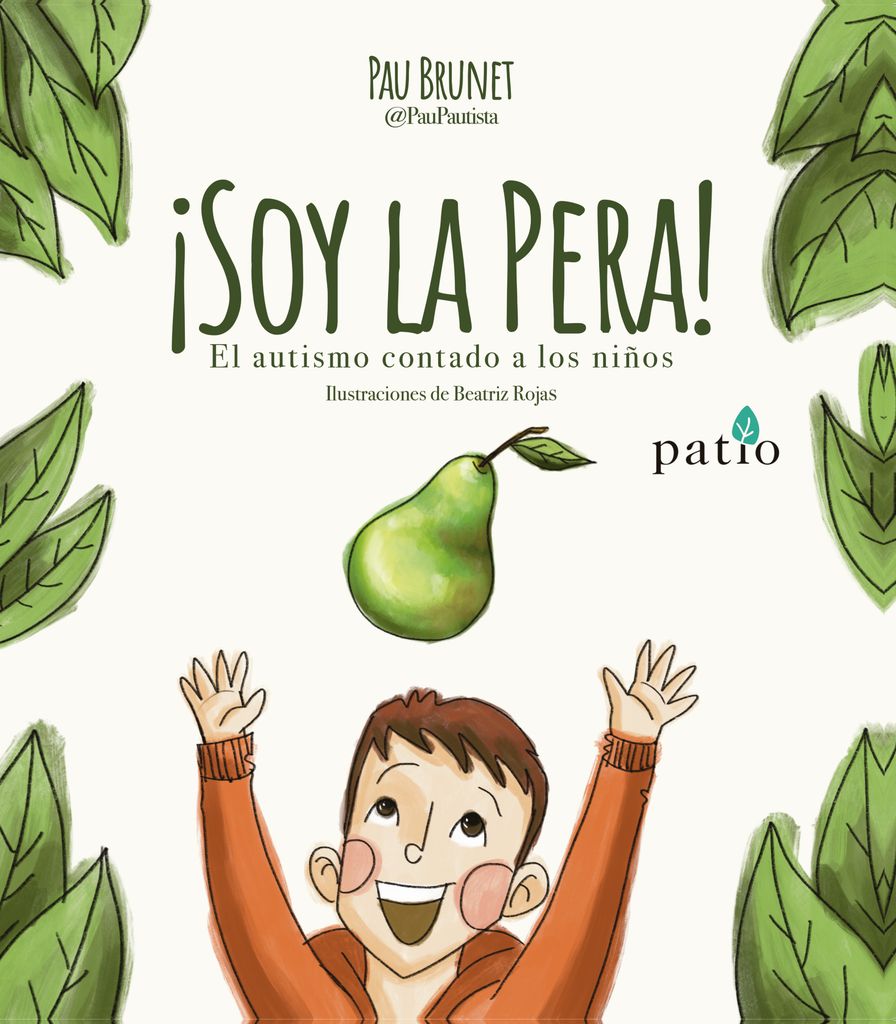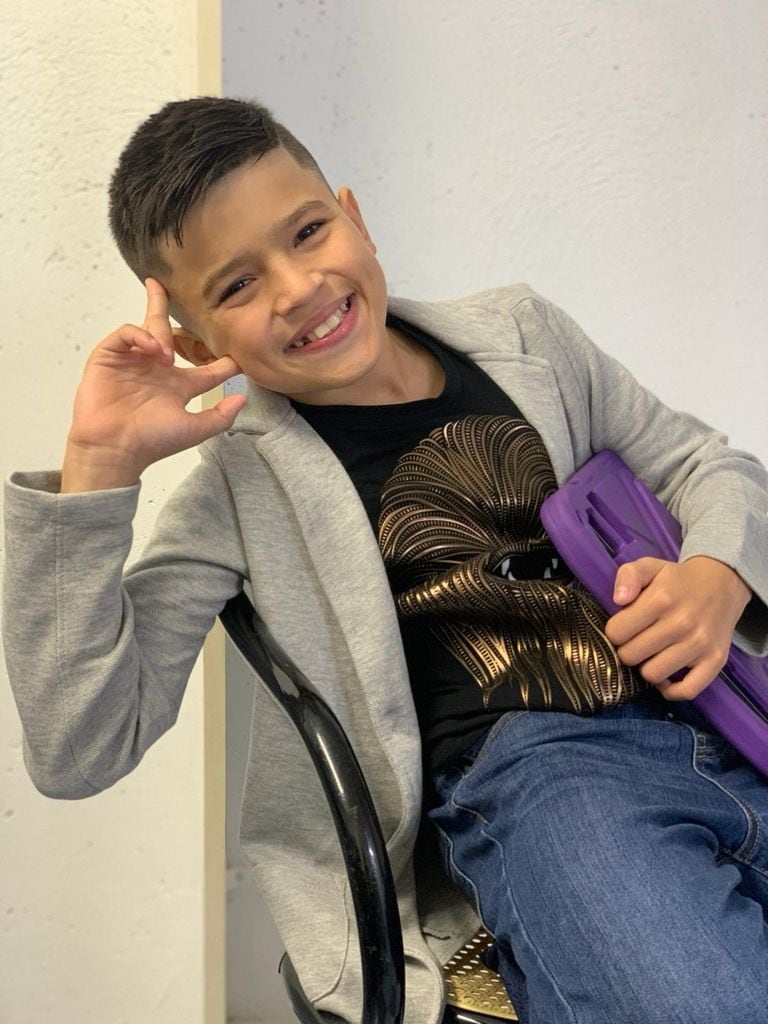I am the pear! (Ed. Patio) is the book by Pau Brunet, a 10-year-old boy with autism who wants to tell the world who he is and how he feels to bring us closer to his own universe. And he does it through this illustrated story for children ages six and up.
Pau (www.paupautista.com) has participated in different television and radio programs and disseminates through his social networks, where he has managed to gather more than 700,000 followers. We have talked with him and his parents, Fèlix Brunet and Daniela Montes, about this literary project and their day-to-day life.
If they knew how hard it is for autistic people to fit in, they wouldn’t laugh at us
How can we explain what autism is to those who don’t know it?
autism It’s something that happens to you from the time you are born until you die, that alters some senses such as hearing, touch, even the way you think; That is, it makes you be a little different from others in some things.
Who would you like to read your book?
I would like all neurodivergent children to read it so that they understand autistic children. Also I would like parents of autistic children to read it so I can explain to them what autism is in a way they can understand.
What do you think of people who use the word autistic as an insult?
I think they lack culture because if they knew how hard it is for autistic people to fit in, they wouldn’t laugh at us.
What do you like to do most in your day to day life?
I like mealtime because I’m with family and I can relax and hug my dog Max. I like to play and walk with Max.
Are there things you would like to change about yourself if you could or are you happy this way?
I like being the way I am. There are things that happen to me that I don’t like, but I accept myself.
Sometimes you have crises, how do you feel during them?
I feel quite bad, angry and sad at the same time and I have a thousand mixed thoughts. Luckily I don’t have many.
You have many followers on social networks, do you think that with your example you help autism be better understood?
The truth is, my parents carry that; I don’t have a phone and I don’t watch social networks. But I think that I do help many people understand a little about autism, although autism is a spectrum and there are many things that I don’t know and I can’t explain. I explain my autism in my own way and I hope I can help a little.
What is the misconception about autism that you would like to correct?
Let them say that it is a disease and They think that all autistic people are the same because in reality we are all different.
How did the idea for the book come about and what do you like the most?
We made the book because my father explained a story about pears and apples to some children in my class so that they understood autism and then many people told us that it was a good idea to make a story. What I like about stories is seeing my life in drawings.
What are your favorite hobbies?
I like designing in 3D, cooking, going on RV trips with my parents and sister, museums, learning interesting facts, and playing Roblox.
It bothers me that they say that autism is a disease, and besides, all autistic people are different
Parents speak: What is day-to-day life like with Pau?
Paul He has very planned and routine dayshe goes to school and every day in the afternoon he has therapies, extracurricular activities and sports. On weekends he is usually at home quietly or we go out for a walk somewhere nice, depending on the time of year this varies, since for example in summer we have a totally different routine.
What is the best and worst thing about your autism?
Autism has few positive things, we could highlight (and we talk about what we have at home), that something positive is sincerity, spontaneity, innocence, and lessons in resilience that Pau and Carolina give us every day.
The worst we could highlight are the crises, health problems such as gastrointestinal problems, depression, having to depend on therapies and visits to the psychologist weekly, the price of therapies, some problems in education, the rejection of some people, misunderstanding , ableism, sensory problems, See your child sad because he is aware that he is rejected on many occasions, food selectivity and many more things.
How do you envision your future?
The truth is that we learned to live in the present because we are terrified of the future. We do not know if Pau will be able to drive a vehicle one day due to his stereotypes, if he will be independent, We do not know if he will be able to finish his studies, nor if he will be able to become independent or if he will be able to have a job.
Both parents are terrified of traveling at the same time in case something bad happens and the children are left without us, who would accept them, who would understand them… These are things that go through our heads and scare us, that’s why we live in the present. We live happy with what we have, we appreciate the little things, We take advantage of all the moments we can as a family and try to educate our children as best as possible.


